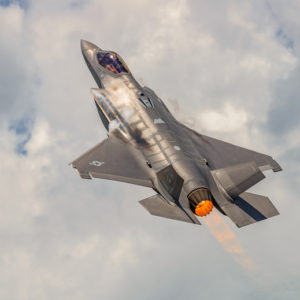Editor’s Note: For an alternative viewpoint, please see: Counterpoint:How Much Defense Spending Is Enough
Pentagon spending is, literally, out of control — and it is making America weaker, not stronger. It’s time — past time — for a fundamental reorientation of the federal government’s spending, with Pentagon spending slimmed and the resultant savings reallocated to address domestic and humanitarian priorities.
The almost three-quarters of a trillion dollars in the annual Pentagon budget doesn’t reflect any reasonable assessment of national security threats, common-sense priority setting or any kind of honest reckoning with the costs and benefits of an additional billion dollars for war-fighting. The result is that we are wasting hundreds of billions of dollars, fueling endless war and diverting money from other vital needs.
The Pentagon eats up more of the federal government’s discretionary budget — $738 billion for the current fiscal year — than all other discretionary spending combined. Think about that for a moment: The Pentagon has been gifted more resources than our diplomatic and peace-building agencies, more than the Environmental Protection Agency, more than our education and housing programs, and more than we spend on scientific research … combined.
At the same time, the Pentagon is unable to pass an audit. For 2020, the Pentagon received a $20 billion budget boost despite being unable to explain how it spent the outlandish amount it received in 2019.
The endless sums thrown at the Pentagon aren’t commensurate with any threat we face. U.S. Pentagon spending is more than the next seven top military spending countries combined.
Even worse, bottomless Pentagon spending is intertwined with the endless wars that have left us and the world less safe. Military and political figures of all political persuasions agree with this basic assessment; and the Afghanistan Papers recently published by the Washington Post show that — despite public proclamations to the contrary — top political and military officials have recognized all along that the Afghan War was an unwinnable disaster.
We have spent and continue to spend unfathomable sums on endless war. Researchers at Brown University put the total at $6.4 trillion, including cost of caring for injured veterans. The wars have killed more than 800,000 people directly and many more indirectly — all while failing in their mission and leaving us less safe.
Our country can no longer tolerate bottomless Pentagon spending and endless war. We need to pull back from constant and ever-expanding war-fighting and instead invest much more energy (and resources) in diplomatic measures to reduce international conflict.
We need to focus on the great international challenges that create instability but are not amenable to military solutions: poverty, newly emergent diseases, wealth inequality and, above all, the climate crisis.
And we need to reallocate hundreds of billions every year away from the Pentagon to address problems at home that parallel those global challenges: ensuring health care for all, addressing economic inequality and transforming our economy to rely on efficiency and renewable energy in order to avert climate catastrophe.
There are plenty of opportunities for massive cuts — on the order of $200 billion a year or more — in Pentagon spending without damaging national security:
We can save $70 billion or more a year by eliminating a Pentagon slush fund, known as the “Overseas Contingency Operations account,” that is being used for programs that have no connections to emergencies or contingencies.
We can save more than $40 billion a year by ending reliance on expensive private contractors to do work that more affordable government employees should do, and by eliminating wasteful contracting strategies that skyrocket costs in the final month of a fiscal year.
There is a long list of super expensive weapons, like the F-35, that should be eliminated, cut back, or replaced with more cost-effective alternatives.
Cutting the number of troops in Afghanistan — or pulling them out altogether — would save tens of billions annually.
For far too long, Pentagon spending has been immune from the kind of scrutiny and common-sense analysis applied to other forms of government spending: Is the money properly accounted for? Are private actors profiteering at public expense? Does the spending address legitimate national priorities? Should we spend another dollar on this program at the expense of alternatives? Is this program achieving its objectives?
When you ask those questions about Pentagon spending, the answers all point in one direction: We are spending too much — far too much — on weapons and war, and on price-gouging and profiteering private contractors. And that spending is starving us of the monies we need to address key priorities, from education to climate. It’s time to reallocate hundreds of billions of Pentagon spending and put people over the Pentagon.

